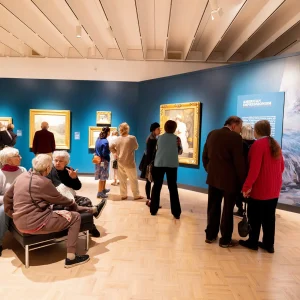In the United Arab Emirates, mourning is more than a personal experience—it is a deeply rooted cultural and national expression of solidarity, faith, and respect. When the nation grieves, whether for a prominent leader or a beloved family member, the process reflects centuries-old traditions blended with modern values of unity and reverence. The UAE, known for its resilience and hospitality, has a unique and dignified approach to mourning, shaped by Islamic customs and Emirati heritage.
A Nation That Mourns Together
When a prominent member of the UAE’s ruling family or government passes away, national mourning is declared. This is a significant period in which the entire country participates in shared grief. The flags across the nation are lowered to half-mast, and entertainment is paused across television and radio broadcasts. In such moments, the unity of the Emirati people is especially visible, as citizens and residents come together in prayer, reflection, and remembrance.

National mourning periods vary depending on the position of the deceased. For instance, the passing of a head of state may prompt a 40-day mourning period, while other leaders may be honored with three to seven days of mourning. During this time, government offices, schools, and public institutions may temporarily suspend operations. Major events are often postponed, and cultural institutions may close temporarily as a mark of respect.
Religious and Cultural Foundations of Mourning

In Islamic tradition, mourning is governed by clear principles found in the Quran and Hadith. Upon a person’s death, Muslims are encouraged to say, “Inna lillahi wa inna ilayhi raji’un” (“We belong to Allah, and to Him we shall return”). This declaration reflects the deep belief in the temporality of life and the promise of the hereafter.
For family members, the mourning period is more personal and spiritual. According to Islamic tradition, a general mourning period lasts three days, during which friends and relatives may visit the family of the deceased to offer condolences, read the Quran, and pray for the soul of the departed. Women who lose their husbands observe a four-month and ten-day mourning period (iddah), during which time they refrain from wearing decorative clothing and avoid social gatherings.
In Emirati culture, these customs are observed with deep solemnity and respect, often accompanied by additional community-oriented practices. Large tents may be set up near the home of the deceased, where family and friends gather for prayers and shared meals. These majlis condolence gatherings are a vital part of mourning in the UAE, reflecting the close-knit nature of Emirati society.
Condolence Messages and Public Tributes
The UAE places great importance on honoring those who pass away, especially national figures. When a prominent individual dies, the country’s leaders, including the President, the Ruler of Dubai, and Crown Princes, issue official statements of condolence, often shared across social media, television, and print. International leaders also send messages, underlining the UAE’s influential presence on the global stage.
For public figures, state funerals are held, and funeral prayers (Salat al-Janazah) are performed at mosques across the emirates. In recent years, digital platforms have also become a space for expressions of grief. Citizens and residents post prayers, eulogies, and memories, often accompanied by the black ribbon symbol of mourning.
In 2022, when Sheikh Khalifa bin Zayed Al Nahyan, the second President of the UAE, passed away, the country observed an extended mourning period. The event was marked by deep emotion and unity across all seven emirates. Citizens, residents, and even visitors paid tribute, and the world witnessed the strength of the UAE’s cultural and spiritual foundations in the face of sorrow.
Respecting Mourning as a Resident or Visitor
Given the UAE’s diverse population and global visitorship, it’s important for non-Muslim residents and tourists to understand the appropriate behavior during mourning periods. During national mourning, it is advised to:
- Avoid playing loud music in public spaces or cars.
- Postpone parties or celebratory events.
- Wear modest and subdued clothing.
- Follow updates from local authorities regarding changes in public services or schedules.
- Express condolences respectfully when appropriate.
Understanding these customs not only shows cultural sensitivity but also strengthens the spirit of coexistence that defines the UAE.
Mourning and Media in the Modern Era
The UAE’s media plays a significant role during mourning periods, helping guide the public on what is expected, while also reflecting the national mood. State-run media will often replace regular programming with recitations of the Quran, documentaries on the life of the deceased, and interviews with community leaders and scholars. Social media influencers and public figures also pause promotional content and instead share tributes or spiritual reflections.
Digital billboards across major cities switch to black and white themes, often displaying verses from the Quran or heartfelt messages in honor of the deceased. Mosques conduct special prayers, and community centers often hold lectures or remembrance events to reflect on the meaning of life and the values of the departed.
Healing Through Unity
One of the most powerful aspects of mourning in the UAE is how it brings the community closer together. Whether it’s a high-profile figure or an ordinary citizen, loss is met with collective compassion. Families receive meals, messages, and moral support from their neighbors and extended social circles. Mourning, in this sense, becomes a process of collective healing, rooted in faith and empathy.
This culture of mutual support is especially important in a country with a high expatriate population. Many residents, regardless of background or religion, participate in condolence visits or community prayers, demonstrating the UAE’s inclusive approach to shared humanity.
Preserving the Legacy of the Departed
Mourning in the UAE is not only about grieving the loss—it’s about celebrating the life of the person who has passed. Whether through charitable initiatives in their name, foundations, scholarships, or community projects, many families honor the deceased by continuing their good work. The government often supports such initiatives, particularly for public figures who contributed significantly to national progress.
In educational institutions, students may be taught about the values and contributions of leaders who have passed away. Museums and cultural centers might host temporary exhibits or tributes to preserve the memory of influential personalities. This forward-looking approach ensures that mourning becomes a stepping stone for legacy-building and reflection.
A Reflection of National Character
In a rapidly modernizing world, the UAE continues to uphold its deep-rooted traditions of dignified mourning, blending faith, community, and modern communication with respect and grace. Whether it’s the quiet prayer of a family member, the official mourning announced by royal decree, or the heartfelt tribute shared on social media, each expression contributes to a broader narrative of national unity.
The way the UAE mourns is a mirror of its values—faith, dignity, loyalty, and resilience. In grief, the country finds strength. In remembrance, it finds renewal. And in unity, it honors every life with the dignity it deserves.
Do follow Uae stories for more Updates
Fresh Finds: Sharjah’s Bustling Fish Market Reels in Community Charm












